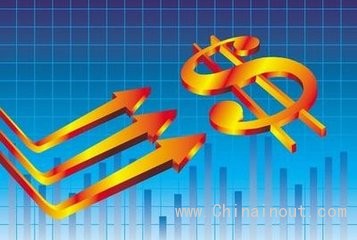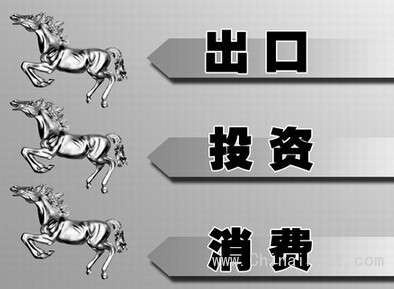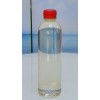
一位竞购者回忆道:“当这笔交易出现时,大家都疯了。”韩国上一次大规模收购交易是5年前KKR收购韩国东洋啤酒公司(Oriental Brewery)——KKR从这笔投资赚得5倍多的回报——这也助长了各方的收购热情。ADT交易也是韩国自2008年以来规模最大的一笔交易。
(更多资讯关注中国进出口网)
几天前,KKR还从一家陷入困境的卖家手中,购入了为房地产开发商提供服务的韩国企业Koreit的部分股权。但相对于围绕ADT的热潮,那笔交易规模较小,吸引的关注和竞争也少得多。而且,尽管韩国各银行乐意为ADT提供债务,但如今它们似乎对房地产没什么兴趣。
韩国以及其他很多亚洲国家的不良资产市场深度不大。但随着债务规模和成本上升,KKR旗下特殊情况基金等投资者正准备在亚洲迎接很多人预期出现的更为普遍的机遇。
“形成对比的是,自2008年危机爆发以来,发达市场的杠杆率有所下滑,而新兴市场(特别是在亚洲)的杠杆率大幅上升,”摩根大通(JPMorgan)经济学家在最近的一份报告中写道,“2008年第四季度,亚洲新兴市场的债务存量为9.5万亿美元,到2013年底升至逾21万亿美元。总债务与GDP的比率从2008年第四季度的90%升至近120%。亚洲新兴市场的外国负债占出口的比例(近50%)如今处于过去10年来最高水平。”
在韩国,不良债务集中在建筑、房地产和陷入困境的航运公司,例如韩进海运(Hanjin Shipping)。但这很有可能会蔓延至更多工业企业,正如日本的不良债务正从房地产蔓延至工业企业那样。
另外,韩国(还有中国)是日元贬值的主要受害者。韩国私营部门负债严重,而其在新兴世界的出口市场可能面临需求放缓。
相比之下,在印度,对外资的需求只会增长。人们对默迪(Modi)政府最初的乐观情绪,已被对经济现实更为冷静的评估所取代。电力行业和其他基础设施相关行业并购交易的推动者们,正重新回到谈判桌上,而就在几周前,他们还告诉潜在的海外投资者,印度不再需要他们的钱了。印度央行(Reserve Bank of India)的新规要求竞购不良资产的实体拿出更多资本,这也将为外国竞争者创造机会。
还有就是中国。根据全球其他国家的标准,中国发放信贷的速度让很多分析师确信,中国将爆发一场金融危机。但并非所有人都认为真会如此。
美国私人股本基金华平(Warburg Pincus)最近联手其他公司,以24亿美元购入中国华融资产管理公司(ChinaHuarong Asset Management)部分股权。华融成立于15年前,任务是在中国最大银行工行(ICBC)上市之前接管其不良贷款。预计华融不久后也将上市,将成为中国第二个上市的大型资产管理公司。
多数投资者将这些资产管理公司视为投资中国不良债务的一个途径,因为它们的债权组合包括向中国陷入最严重困境的行业(包括水泥、玻璃和钢铁)发放的贷款。华融筹集的部分资本可能被用来帮助重组这些借款者的债务。
然而,华平高管更愿意将华融视为投资中国本身的途径:中国最终将从一个对大宗商品需求极其旺盛的出口国,变成一个不那么依赖大宗商品、由国内拉动的经济体,这家政府支持的公司将从中受益。
对于此前依靠中国需求实现繁荣的印尼等国而言,这种转变可能不是一件好事。但这意味着,在亚洲其他地区,投资陷入困境的企业的机会只会增多。
(更多资讯关注中国进出口网)

A few months ago, US electronics maker Tyco put its ADT Korea unit up for auction. Thebidding for Tyco Fire & Security Services Korea was fierce, with private equity investorsand small Korean domestic funds combining with each other to muster enough capital tomake a credible offer. Domestic banks were also happy to provide bidders with record amountsof debt. That is why, when Carlyle won, it paid almost $2bn for a company with an operatingincome of around $125m.
“Everyone went nuts when this deal came along,” one bidder recalls. It helped that the lastmajor deal in Korea was KKR’s purchase of Oriental Brewery five years ago – on which theprivate equity group made more than five times its money. ADT was also the biggest deal inKorea since 2008.
(更多资讯关注中国进出口网)
A few days ago, KKR also bought a stake in Koreit, a Korean company that provides servicesfor real estate developers, from a distressed seller. But, in contrast to the frenzy around ADT,this was a smaller deal that attracted far less attention and competition. And while Koreanbanks were happy to provide debt for ADT, they appear to have very little appetite for realestate these days.
The market for distressed assets in Korea and many other Asian countries is not deep. Butinvestors such as the special situations arm of KKR are gearing up for what many expect to bemore widespread opportunities across Asia as both the level and the cost of debt rises.
“In contrasting developments, leverage in developed markets has come down since the 2008crisis, while in emerging markets particularly in Asia, it has risen significantly,” wroteeconomists from JPMorgan in a recent note. “EM Asia’s stock of debt stood at $9.5tn in 4Q08,and rose to over $21tn by end-2013. Total debt increased from 90 per cent of GDP in 4Q08 tonearly 120 per cent of GDP. EM Asia’s foreign liabilities are now a higher share of exports(nearly 50 per cent) than at any time in the past 10 years.”
In Korea, the distress is now centred on construction, real estate and troubled shippingcompanies, such as Hanjin Shipping. But it may well spread to more industrial companies – justas distress in Japan is beginning to spread from real estate to industrial companies.
Moreover, Korea is – along with China – the primary victim of the depreciation of the Japaneseyen. Its private sector is heavily indebted, while its markets in the emerging world face apossible weakening in demand.
In India, by contrast, the need for foreign capital can only grow. The initial euphoria over theModi regime has been replaced by a more sober assessment of economic realities. Promotersof deals in the power industry and other infrastructure-related sectors who, just weeks ago,told potential overseas investors that their money was no longer needed are now coming backto the table. New regulations from the Reserve Bank of India require bidders for distressedassets to put more capital up – which will also create opportunities for foreign players.
And then there is China. By the standards of the rest of the world, the speed with which credithas been extended in China has left many analysts convinced that there will be a financialcrisis on the mainland. But not everyone is certain that this will prove the case.
Warburg Pincus, the private equity firm, was part of a group that recently took a stake inChina Huarong Asset Management for $2.4bn. Huarong was established 15 years ago to takeover the troubled loans of Industrial & Commercial Bank of China, before China’s biggestbank went public. Huarong itself is expected to soon go public – the second of the big assetmanagers to do so.
Most investors consider these asset management companies as a way to play distressed debt inChina, since their portfolios contain loans to the most troubled sectors in China wher overcapacity is most dire: including cement, glass, and steel. And part of the capital Huarongraises is likely to help restructure the debts of such borrowers.
But executives at Warburg prefer to see Huarong as a proxy for China itself – agovernment-backed firm that will be the beneficiary of the country’s eventual shift from beingan exporter with a voracious appetite for commodities to a less commodity intensive,domestic-led economy.
(更多资讯关注中国进出口网)
That shift may not be good for the countries such as Indonesia that previously prosperedfrom Chinese demand. But it means the opportunities for investing in distressed companies willonly grow elsewher in the region.











